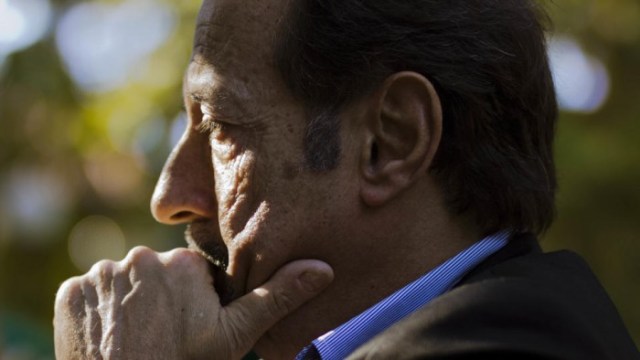Argentine director Pablo Trapero has had a long and fruitful relationship with Venice, his debut Crane World picking up prizes here way back in 1999. This year he’s back with The Clan, the true crime story of the Puccio family, which was involved in kidnappings in Argentina in the early 80s.
The film opens in 1985 with a violent police raid on a home. Our initial focus is on Alejandro (Peter Lanzani), the Hobbit-haired rugby playing Puccio fils. He’s a popular kid and is called on to inspire and motivate the team. Off the pitch, he is a cherubic and cheeky presence at home and in the locker room. His pleasant life is set against the backdrop of change in the country. Galtieri’s military junta is out and there is a new democratic dawn in Argentina.
For Arquimedes Puccio (Guillermo Francella), the patriarch of the clan, this new dawn means a slightly different work plan. Under the regime he was involved in state kidnappings; now he decides to go private, his first victim a rugby mate of Alejandro’s. And thus we see Alejandro’s initiation into the unit, used as bait to lure the victim in. On the face of it, Alejandro looks like he’s been duped by his dad, but as the film progresses we see how the entire family was complicit in the father’s crimes.

This is what makes it such compelling viewing: it is staggering to see this apparently normal, loving family go about their daily lives while the muffled screams and movements of their captives can be heard through the walls. Despite the occasional tearful moment and a couple of acts of rebellion, the children comply with the situation. The reason for this is their father’s powerful and irresistible hold over them.
As Arquimedes, Francella is both hypnotic and reptilian. He uses guilt to coerce his kids and when his steady-gazed mask falls, we see the psychopathic violence beneath it. Thanks to Francella’s performance, it is easier to understand the power he wielded over his family.
The story flits somewhat confusingly between the crucial years of 1982 and 1985. Younger audiences might not be aware of the country’s tumultuous years and of the horrors perpetuated by the regime until its fall. However, there are plenty of references to the state’s sinister past and there is no shortage of shady characters – Arquimedes’ government cronies – who have maintained their power despite the inauguration of a democratic government. None of them is convinced that democracy can prevail and their insouciant confidence of a return to the bad old days is chilling.
Through the Puccio story, Trapero has tapped into the psyche of the period. The double-dealings, the disappeared, the semblance of a new era while the old still holds a strong grip on state machinations, is all here in this fascinating and disturbing thriller.








